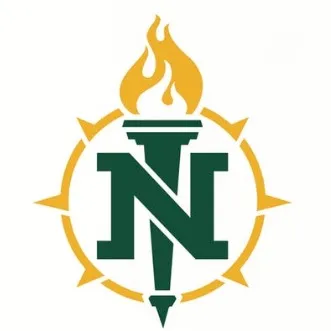Northern Michigan University's Health Center will conduct COVID-19 molecular testing for students, faculty and staff in advance of the Aug. 17 fall semester kickoff. Under clinical supervision, individuals will complete a shallow swipe of their nostrils and place the short swab in a test tube. The samples will be processed and sent to a Chicago lab capable of analyzing large quantities with timely results. After this initial mass screening, the NMU Health Center will be fully equipped to do in-house molecular, antibody and antigen testing and deliver quick results as the need arises.
As part of the “Passport to Campus” event Aug. 3-16 at the Northern Center, members of the NMU community are asked to reserve a time slot for the COVID-19 molecular testing. All will receive two complimentary NMU-branded face coverings during the appointment and, if applicable, their NMU-issued laptop computers and 2020-21 parking passes. Nursing and Clinical Sciences students will assist Health Center personnel with the screening.
“We're doing anterior nasal swabs, which only go about one inch into the nostril,” said Dr. Chris Kirkpatrick, NMU Health Center medical director. “It's simple enough that individuals can self-swab with supervision, eliminating the need for close physical contact from a clinician and reducing the risks associated with coughing, sneezing or droplets. The swabs have to be agitated in the test tube fluid, then removed before the tubes are capped and sent off to the Chicago lab. This molecular testing can detect genetic material associated with the virus to identify people with active cases.”
The Health Center had previously used antigen testing, which looks at protein spikes on the external portion of a virus rather than the genetic material inside, for influenza. It is obtaining a test specifically for coronavirus that will utilize the same equipment, with results in 15 minutes. It has also obtained two new devices: a BioFire FilmArray Torch, which can detect coronavirus or 20 other pathogens that cause similar symptoms in one hour; and a VITROS 5600 chemistry analyzer for antibody testing, which determines if a patient has previously been infected with COVID-19.
“Before we had the VITROS onsite, we obtained samples and sent to UP Health System-Marquette or Mayo Clinic,” Kirkpatrick said. “Now that it's in house, we can better control costs for people with insurance other than the university's plan, or those without insurance. The caveat is that antibody testing is not extremely helpful in active cases. There's also uncertainty about whether a positive result implies immunity, or how long immunity may last. That will become increasingly clear as we get further into the pandemic.”
The VITROS 5600 will also be used for an academic research project that will retest two groups of volunteers, students and employees, several times over the fall semester for both antibodies and current infections to help track NMU community trends. Paul Mann, associate dean and director of the School of Clinical Sciences, is directing the study. Some of the student volunteers also enrolled in the summer special topics course he taught on COVID-19 testing.
“We have approval to conduct research-based surveillance through blood draws to detect antibodies among those without symptoms who may have had it previously, as well as nasal swabs for viral detection of current infections,” said Mann, who has been involved in mass testing for HIV in the military and in flu pandemic preparation, but nothing as challenging as COVID-19. “The goal is to determine whether there's an asymptomatic spread on campus that we're not seeing through regular health channels.”
Kirkpatrick said he will leverage university resources and work with the Marquette County Health Department on contact tracing, or tracking and notifying people who've come in close physical contact with patients with COVID-19.
“What we have to be cautious of is balancing privacy practices with the need to notify those who've been in contact with someone who has the virus,” he said. “We won't identify people with positive cases by name. We'll just let others know they've been in contact with someone who tested positive, then convey the risks and their need to quarantine or test. It's a fine line, but we don't want to compromise protected health information.”
Students who live in campus housing and test positive or experience clinical symptoms of the virus will receive orders to isolate. Those who've been in close proximity to someone who tests positive will be separated from the general population and quarantined. NMU has set aside 150 rooms in Spalding Hall for isolation and quarantine purposes.
Kirkpatrick is hiring two temporary, full-time nurses to monitor students in Spalding and manage logistics related to meals, remote learning and additional testing or transport to the hospital, if needed. They will support general Health Center operations as well. He has also employed two phlebotomists to assist with blood draws.
“As Paul [Mann] says, despite the rigorous testing plans we have, we can't test ourselves out of a pandemic,” Kirkpatrick said. “The most important thing the university is doing is implementing infection control protocols such as social distancing and mask wearing. Those are the most important pieces of this puzzle.”
NMU's existing Emergency Planning Logistics Team created 11 subgroups to address various aspects of returning to campus. Find comprehensive information on NMU “Safe on Campus” initiatives here.

